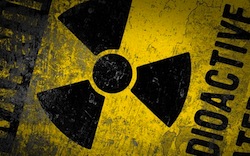Debunking the Wall Street Journal's Radioactive Scaremongering
January 7, 2010
Featured Image
We are happy to serve you a daily summary of the day's top nuclear policy stories each morning, with excerpts from the stories in bullet form.
Stories we're following today:
A False Nuclear Alarm - Joe Cirincione in Foreign Policy [link]
- With its latest editorial calling for more nuclear weapons and more weapons spending, the Wall Street Journal has gone over a journalistic cliff. The serious factual errors in its Jan. 5 screed, "A False Nuclear Start," raise serious questions about the newspaper's credibility and integrity.
- The Journal is wrong to frame this issue as a liberal-conservative divide. There is, in fact, a broad, bipartisan consensus on a new nuclear security strategy that would prevent nuclear terrorism, prevent new nuclear-armed nations, and steadily reduce Cold War nuclear weapons stockpiles. Many conservatives support an approach that would maintain a safe, secure, and effective nuclear arsenal for as long as nuclear weapons are needed.
- The current policy is to do exactly this, but the Journal's editors are pushing a far-right strategy to build and test new nuclear weapons. This would break U.S. commitments, bring down the global nonproliferation regime, and increase the threats to America.
- There is one thing the Journal got right: It is time to choose.
The Nuclear Posture Review, Now and Later - Joshua Pollack in the Bulletin of the Atomic Scientists [link]
- The long-awaited report of the third Nuclear Posture Review is now scheduled for delivery to Congress on March 1. According to a recent New York Times article, the posture review will consider the prevention of nuclear proliferation and nuclear terrorism to be equally as important as the nuclear deterrence mission.
- There are at least two ways that the posture review might quickly and usefully address the threats of nuclear proliferation or terrorism. Neither requires any special technology or innovation. Both are simple, straightforward ideas involving traditional aspects of nuclear posture--nothing too exotic or complex.
- The first proposal concerns declaratory policy, an issue I discussed in my October column. Making this type of announcement comes at little, if any, price and would strengthen Washington's hand in its efforts to reinforce the nuclear nonproliferation regime. It would underscore that U.S. nuclear weapons do not play any coercive role that could be seen as legitimizing proliferation.
- The second proposal concerns the security of U.S. nuclear weapons. A 2008 Air Force blue-ribbon review observed that security at the NATO air bases designated capable of hosting tactical nuclear weapons "varies from country to country in terms of personnel, facilities, and equipment," and in most places was well short of Defense Department standards. It recommended the consideration of "consolidation of resources," implying a withdrawal of bombs from less secure facilities. Carrying out a consolidation could help to keep U.S. nuclear weapons away from criminals or terrorists.
Nuclear Threat Demands a Sustained U.S. Effort - Howard James Hubbard and Leon Lederman in the Atlanta Journal Constitution [link]
- What has not changed is a consensus — within the scientific and religious communities — that nuclear weapons are a global liability that makes our nation and world less secure. There are still some 20,000 nuclear weapons in the world; 95 percent are held by the United States and Russia. Many are on alert status, ready for immediate launch.
- The end of the Cold War changed the world, and 9/11 changed it again. But despite new threats to our security, we continue to rely on outdated thinking when it comes to nuclear weapons.
- As a nuclear physicist and a Catholic bishop, we agree that there are both practical and moral obligations to limit the risks posed by nuclear weapons. Even if only one nuclear weapon were detonated, there would be a profound loss of human life and incalculable political, economic and environmental consequences.
Hiroshima and Nagasaki Survivor Dies Aged 93 - The Guardian [link]
- Tsutomu Yamaguchi witnessed at close hand the nuclear devastation of two Japanese cities, and lived to tell the tale. Now it will be left to others to tell his incredible story after his death this week at 93.
- Yamaguchi, the only person officially recognised as a survivor of the atomic bombings of Hiroshima and Nagasaki, died on Monday of stomach cancer at a hospital in Nagasaki, his family said today.
- In recent years he talked openly about life as a double A-bomb survivor and became a vocal supporter of nuclear disarmament. He wrote books and songs about his experiences, and in 2006 made a speech at the UN in New York to mark the release of Niju Hibaku (Double Irradiation), a documentary about him and other people who had lived through both nuclear attacks.
- "Having experienced atomic bombings twice and survived, it is my destiny to talk about it," he told the UN.
A View from the Contrarian
Why Nuclear Weapons Aren't As Frightening As You Think - John Mueller in Foreign Policy [link]
- Nuclear weapons certainly are the most destructive devices ever made, as Obama often reminds us, and everyone from peaceniks to neocons seems to agree. But for more than 60 years now all they've done is gather dust while propagandists and alarmists exaggerate their likelihood of exploding -- it was a certainty one would go off in 10 years, C.P. Snow authoritatively proclaimed in 1960 -- and nuclear metaphysicians spin fancy theories about how they might be deployed and targeted.
- Nuclear weapons have had a tremendous influence on the world's agonies and obsessions, inspiring desperate rhetoric, extravagant theorizing, and frenetic diplomatic posturing. However, they have had very limited actual impact, at least since World War II.



